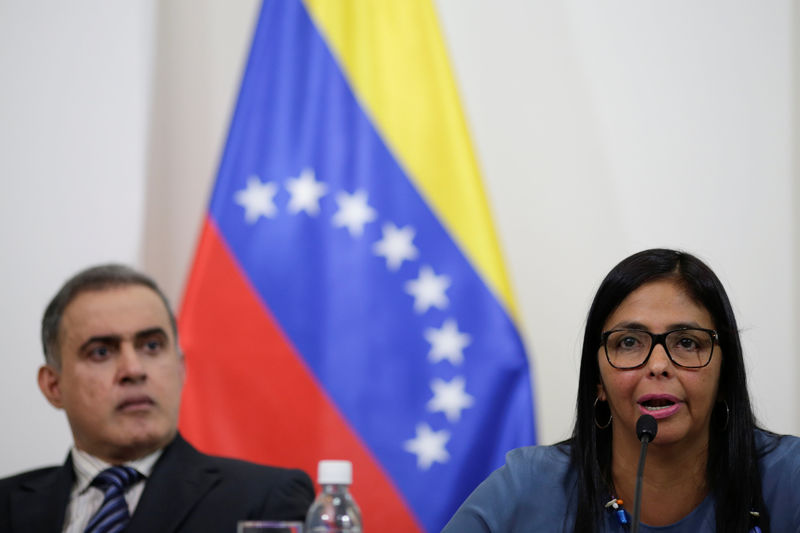By Hugh Bronstein
CARACAS (Reuters) - Opposition candidates running in Venezuela's October gubernatorial elections will be investigated to make sure none were involved in violent political protests this year, the head of a new pro-government truth commission said on Wednesday.
The panel was set up earlier in the day by the constituent assembly elected last month at the behest of socialist President Nicolas Maduro. Government critics say the commission is designed to sideline the opposition and bolster the ruling party's flagging support ahead of the October vote.
Also before the assembly is a bill that would punish those who express "hate or intolerance" with up 25 years in jail. The opposition fears such a law would be used to silence criticism of a government that, according to local rights group Penal Forum is, is already holding 676 political prisoners.
"Whoever goes into the streets to express intolerance and hatred, will be captured and will be tried and punished with sentences of 15, 20, 25 years of jail," Maduro said last week.
Over 120 people have died in four months of protests against the president's handling of an economy beset by triple-digit inflation and acute food shortages.
Maduro loyalist Delcy Rodriguez was named as head of the truth commission, on top of being president of the assembly. She said she would ask the country's CNE elections authority for information about candidates running in October.
"We have decided to ask the CNE to send a complete list of gubernatorial candidates to the truth commission in order to determine if any of the them were involved in incidents of violence," Rodriguez told the assembly, stressing this would have a "cleansing effect" on Venezuela.
"We have seen tweets, messages on social networks and photographs of opposition leaders responsible for convening and organising violent events in Venezuela," Rodriguez told the commission on Wednesday.
"JAIL ANYONE, FOR ALMOST ANYTHING"
Maduro defends the all-powerful assembly as the country's only hope for peace and prosperity.
"The question is whether this is the peace he's looking for: creating a law that gives him and his obedient supreme court judiciary powers to lock up dissidents for 25 years," Tamara Taraciuk, head Venezuela researcher for Human Rights Watch, said in a Wednesday telephone interview.
"The proposal includes incredibly vague language that would allow them to jail anyone for almost anything," she added.
The opposition, which won control of congress in 2015 but has seen its decisions nullified by Maduro's loyalist Supreme Court, boycotted the late July election of the assembly.
'ENTRENCHED IMPUNITY'
In its first session after being elected on July 30, the assembly fired Venezuela's top prosecutor Luisa Ortega and appointed a Maduro loyalist to replace her.
The Geneva-based International Commission of Jurists said in a report on Wednesday that Ortega's dismissal "removes one of the last remaining institutional checks on executive authority."
The country's new chief prosecutor, Maduro's ex-human rights ombudsman Tarek Saab, on Wednesday outlined corruption accusations against Ortega and her husband German Ferrer.
They, and members of Ortega's former staff of prosecutors, are accused of running an "extortion gang" and funnelling profits to an account in the Bahamas, the new chief prosecutor said.
"The Sebin (intelligence service) is raiding my house right now as part of the government's revenge for our fight against totalitarianism in Venezuela," Ortega said on Twitter late Wednesday afternoon.

It was not immediately possible to reach Ferrer. In the past, his wife Ortega has said accusations against them are politically motivated.